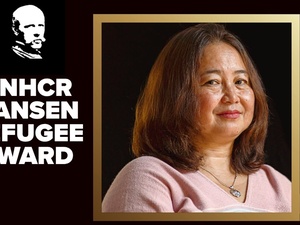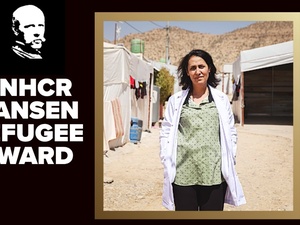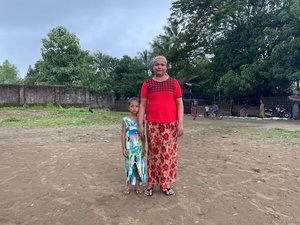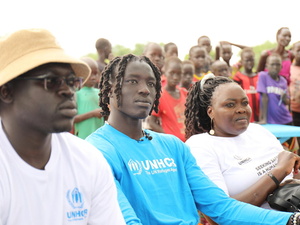UN aid reaches hundreds of displaced people in northern Myanmar
UN aid reaches hundreds of displaced people in northern Myanmar
An inter-agency visit to northern Myanmar's Kachin state has delivered badly-needed aid to hundreds of conflict-affected people.
From February 17 to 21 UNHCR, DRC, WFP, UNICEF and OCHA travelled to Hpakant area, west of the Kachin state capital after access was granted by the Myanmar government. The area saw intensified fighting in September and December last year. This was the first time UN staff were able to reach internally displaced people there since January 2012.
A 10-vehicle convoy brought relief items for 400 displaced families, equivalent to some 2,000 individuals. These included tarpaulins for shelter, blankets, mosquito nets, cooking sets, clothes and sanitary items. Over the coming weeks UNHCR plans to return to Hpakant to distribute supplies for another 1,000 displaced families that have yet to receive any assistance.
In Hpakant the team assessed living conditions, undertook needs and protection assessments and conducted profiling in 17 camps housing more than 6,000 IDPs. The aid workers found overcrowded communal shelters and raised concerns that a lack of privacy may be giving rise to protection issues. They highlighted the need for better temporary accommodation and improvements to camp infrastructure including more health-care services and improved water and sanitation facilities. Several IDPs shared concerns that the situation in their places of origin was too insecure to return.
Under the inter-agency response in Kachin state UNHCR leads the protection sector and is cluster lead in shelter, non-food items and camp coordination and management.
Fighting in Kachin and northern Shan states, which broke out in June 2011, is estimated to have caused the displacement of 75,000 civilians. Of these, some 32,000 are in government controlled areas. An upsurge in fighting between the government and rebels in December and January is believed to have displaced thousands more people. However, figures are difficult to verify since access to many areas has been severely limited.
For more information on this topic, please contact:
- In Bangkok, Vivian Tan on mobile: +66 818 270 280
- In Geneva, Babar Baloch on mobile: +41 79 557 9106









